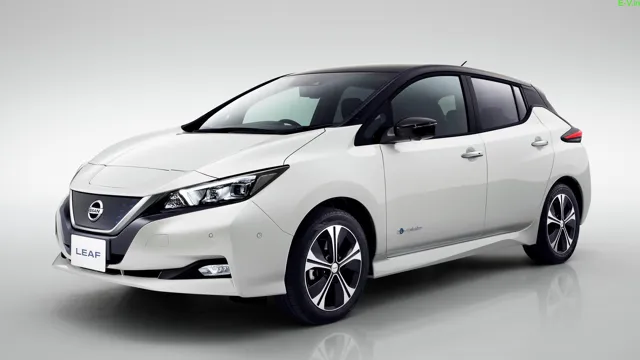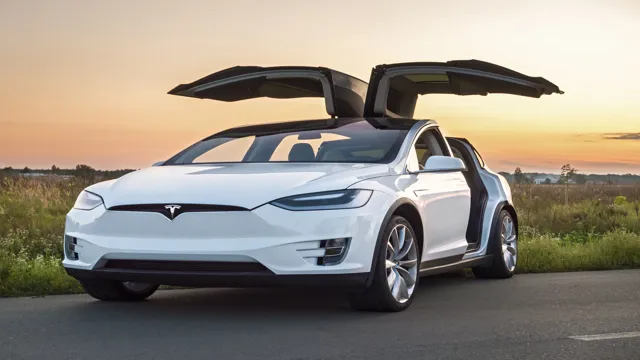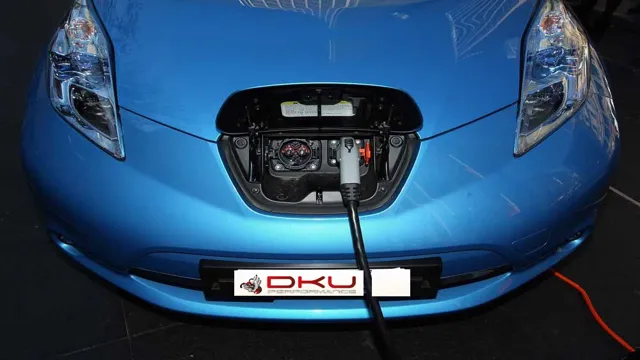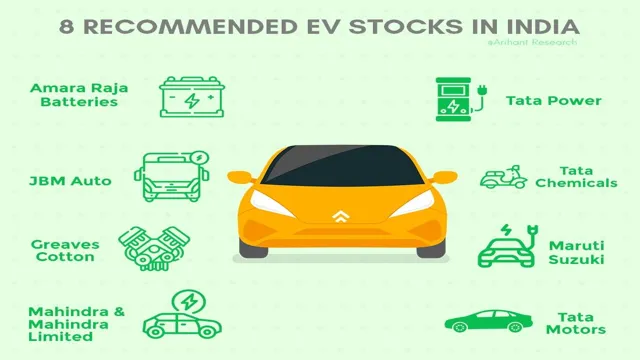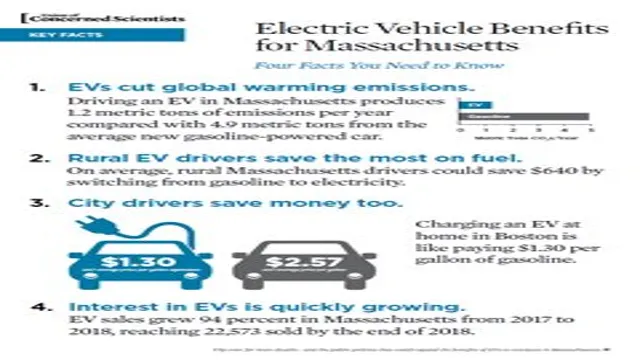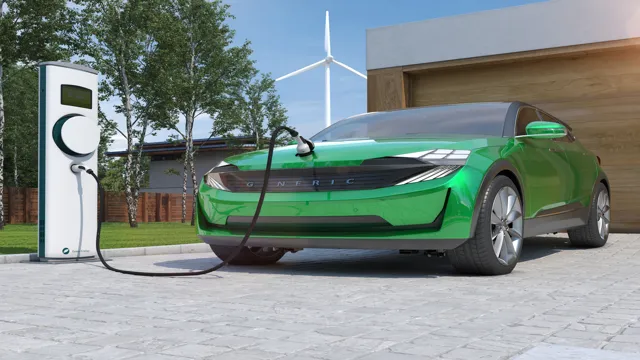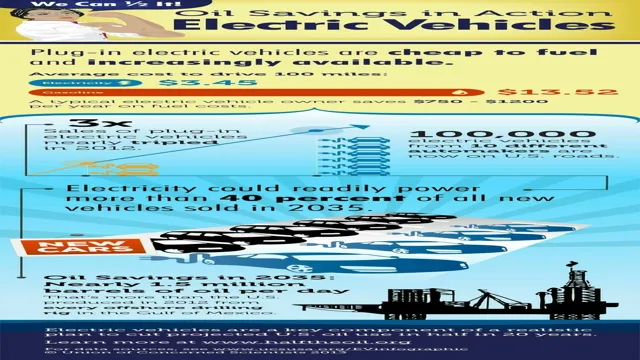Electric Cars in India: The Game-Changer for Individuals, Businesses, and the Environment
Electric cars have become increasingly popular over the years, thanks to the growing awareness of climate change and the need to reduce carbon emissions. India is among the countries that have seen a surge in demand for electric cars, with many consumers keen to make the switch from petrol and diesel vehicles. But who stands to benefit from the rise of electric cars in India? In this blog post, we’ll explore the different groups that stand to gain from the shift towards electric cars and the impact it could have on the Indian economy.
We’ll also look at some of the challenges that need to be overcome before electric cars can become the norm on Indian roads. So, let’s dive in!
Lower Income Groups
When it comes to electric cars in India, it’s often assumed that only the wealthier population will reap the benefits. However, with the government’s push towards sustainable energy and the growing availability of affordable electric vehicles, lower income groups are also likely to benefit. Electric cars are much cheaper to maintain than traditional gasoline-powered cars, which can lead to significant savings over time.
Additionally, the government has implemented various subsidies and incentives to encourage the adoption of electric vehicles, which can further offset the initial cost of purchase. As infrastructure for charging stations continues to expand, electric cars become a more appealing and accessible option for people of all income levels. The widespread use of electric cars has the potential to decrease air pollution and improve overall public health, which in turn benefits everyone, regardless of income status.
Ultimately, while electric cars may have initially been seen as a luxury item, their increasing affordability and accessibility make them a viable option for anyone looking for an eco-friendly and cost-effective mode of transportation.
Access to Affordable Transportation
Access to affordable transportation is essential for lower income groups to maintain their economic stability and mobility. Lack of reliable public transportation can severely limit their access to job opportunities, education, and healthcare. It can also force them to rely on expensive alternatives such as taxis or ride-sharing services, further straining their budget.
With rising gas prices and increasing traffic congestion, owning a private vehicle is becoming increasingly challenging for those on a tight budget. Thankfully, there are programs in place that offer affordable and accessible transportation solutions such as discounted public transit passes, car-sharing services, and community ride programs. By supporting these initiatives, we can help bridge the transportation gap for lower income groups and ensure that they have the means to reach their full potential.
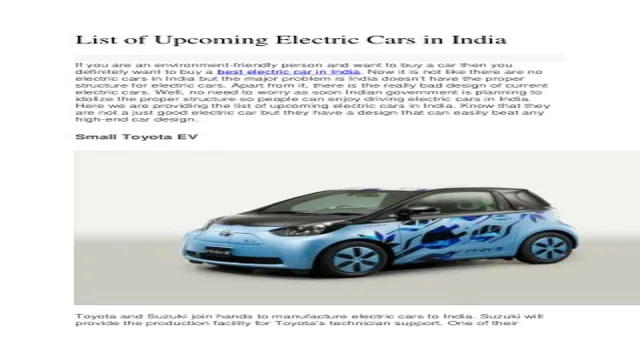
Savings on Fuel Costs
Savings on Fuel Costs for Lower Income Groups For families living on a tight budget, saving money on fuel costs can make a significant difference. Lower income groups spend a significant portion of their income on transportation costs, such as gas, maintenance, and insurance. However, there are ways to reduce fuel costs and make it easier on the wallet.
The first step for saving on fuel costs is to plan your trips efficiently. Planning your trips can help minimize unnecessary driving and help reduce the amount of fuel consumed. By combining your trips for the day, you can save time and money on gas.
Using public transportation such as buses and trains can also be an excellent way to save money on fuel costs. Another way to save money on fuel costs is to maintain your vehicle properly. Regular vehicle maintenance, such as changing the oil and air filter, can help improve gas mileage, leading to reduced fuel consumption and savings.
Simple things like ensuring that tires are correctly inflated can also make a significant difference in fuel economy. Lastly, consider carpooling with others to save on fuel costs. Sharing rides with colleagues or neighbors can reduce your fuel costs and also reduce congestion on the roads.
Carpooling can also be a more eco-friendly option and can help lower the carbon footprint. In conclusion, saving on fuel costs is possible, even on a tight budget. By planning your trips efficiently, maintaining your vehicle properly, and carpooling, you can save money on gas and improve your financial situation.
Urban Dwellers
Electric cars are poised to play a significant role in India’s transportation revolution, particularly in urban areas. In Indian megacities like Mumbai, Delhi, and Bangalore, the increased adoption of electric cars will be especially beneficial to urban dwellers. As the population density in cities continues to increase, the issue of air pollution has become a significant challenge.
Electric cars don’t emit harmful gases, making them a perfect alternative for city driving. The charging infrastructure in India’s major cities is also improving rapidly, making it easier for electric car owners to top up their batteries and get back on the road. Additionally, electric vehicles have lower maintenance costs relative to conventional gasoline or diesel-powered cars, making them quite an attractive financial option in the long run.
With the Indian government’s ambitious target of achieving 30% electric mobility by 2030, the potential of electric cars to benefit urban residents is enormous.
Reduction in Air Pollution
As urban dwellers, one common problem we all face is air pollution. However, over the years, there has been a significant reduction in air pollution in urban areas, and this is great news for us and the environment. One of the significant reasons behind this reduction is the increased use of renewable energy sources.
Houses and offices are now equipped with solar panels, which reduces carbon emissions and lowers air pollution levels. Additionally, public transportation is also being improved with environmentally friendly buses and trains now available. This encourages people to leave their cars at home, further reducing air pollution levels.
However, as residents, we also have a crucial role to play in maintaining clean air. For instance, we can limit the use of fossil fuels, plant trees, and optimize our daily commutes. By working together, we can further reduce air pollution in urban areas, making it safe for everyone and the environment.
Ease of Traffic Congestion
As an urban dweller, dealing with traffic congestion can be a real challenge. Whether you’re commuting to work or simply running errands, getting around in a crowded city can be a nightmare. However, there are some steps you can take to ease the burden.
One strategy is to take advantage of public transit options, such as buses or trains. These modes of transportation can help you avoid the stress of driving in traffic and can also save you money on gas and parking. Another approach is to plan your route carefully, avoiding major highways and busy intersections whenever possible.
By taking side streets or alternate routes, you can often save time and avoid the worst of the traffic. Additionally, consider working from home for a few days each week, if possible. This can help you avoid rush hour traffic altogether and give you some much-needed time to recharge and relax.
With a little creativity and planning, it’s possible to beat traffic congestion and enjoy all that the city has to offer.
Ease of Parking
For urban dwellers, ease of parking can make or break their daily routine. Finding a parking spot in the city can be a daunting task, especially during rush hour. Lucky for us, technology is making our lives easier and more convenient.
The availability of parking apps that allow us to reserve spots before we arrive at our destination is a game-changer. Not only does it save us time, but it also makes parking stress-free. We no longer have to circle around the block, hoping for a spot to open up, or risk getting a ticket for parking in the wrong spot.
With just a few clicks, we can reserve a spot, pull in, and go about our day. It’s like having a personal valet wherever we go. So, if you’re an urban dweller, do yourself a favor and download a parking app – it’ll make your life a whole lot easier!
Government and Public Services
Electric cars are fast becoming popular in India as more people are starting to realize their benefits. One of the groups that stand to benefit the most from electric cars in India are government and public services. These organizations can greatly reduce their carbon footprint and save money on fuel costs by using electric cars.
Additionally, electric cars are much quieter than traditional gas-powered cars, making them ideal for situations where noise pollution is a concern, such as hospitals or residential areas. The Indian government has recognized the potential benefits and has rolled out several initiatives to promote the adoption of electric cars, such as tax incentives and charging infrastructure development. With the growing demand for sustainable transportation, it’s likely that we’ll see more and more electric cars on Indian roads, benefiting not only the government and public services but also the environment and the general public.
Reduced Dependence on Fossil Fuels
As the world becomes more aware of the environmental impacts of fossil fuels, there is a growing movement toward reducing dependency on these resources. Governments and public services are playing a crucial role in this effort by implementing policies and programs that encourage the adoption of renewable energy sources. For example, many cities and towns are investing in solar power plants and wind farms to provide their communities with clean and affordable energy.
In addition, public transportation systems are transitioning to electric or hybrid vehicles to reduce emissions and improve air quality. By taking these initiatives, government and public services are leading the way in reducing our reliance on fossil fuels and building a more sustainable future. Keywords: fossil fuels, renewable energy, government, public services, solar power, wind farms, electric vehicles, sustainability.
Lower Emissions and Improved Air Quality
As cities continue to grow and develop, air quality has become a major concern for governments and public services worldwide. With the increase in emissions from transportation and industry, it is necessary to take action to address this issue. Governments are implementing regulations and initiatives to reduce emissions and improve air quality, such as promoting the use of clean energy sources, developing public transportation systems, and implementing emission controls.
Public services play a crucial role in these efforts, as they provide essential resources for individuals to make sustainable choices in their daily lives. By working together, government and public services can create a future with lower emissions and improved air quality, creating a healthier environment for all.
Automobile Manufacturers and Tech Companies
Electric cars in India have become an exciting prospect, with automobile manufacturers and tech companies gearing up to take advantage of this shift. While electric cars have not yet taken off in India, it’s only a matter of time before the benefits of these vehicles become more widespread, and the country begins to embrace them. The question of who will benefit most from the adoption of electric cars in India is multi-faceted.
On the one hand, automobile manufacturers, both local and foreign, will be able to take advantage of the new demand for electric vehicles. On the other hand, tech companies that specialize in developing battery technology, electric charging infrastructure, and autonomous car features will benefit greatly. In short, it will be a collaborative effort between these two sectors to shape the future of transportation in India.
As electric cars in India continue to gain momentum, we can expect to see more innovation in this space from both automobile manufacturers and tech companies alike. So, it’s safe to say that both automobile manufacturers and tech companies will benefit from electric cars in India.
Conclusion
In conclusion, it’s clear that electric cars have the potential to benefit a wide range of people in India. From environmentally conscious individuals looking to reduce their carbon footprint, to cost-conscious consumers looking to save money on fuel and maintenance, to tech-savvy early adopters excited to try out the latest technology, electric cars offer something for everyone. And as the Indian government continues to invest in infrastructure and incentives to support the growth of the electric vehicle industry, it’s only a matter of time before electric cars become a ubiquitous sight on Indian roads.
So whether you’re a green warrior, a penny-pinching pragmatist, or just someone who loves trying out new gadgets, it’s time to consider making the switch to an electric car and join the revolution of sustainable and efficient mobility!”
FAQs
What is the current market share of electric cars in India?
As of 2021, the market share of electric cars in India is around 1%.
Are there any government incentives for buying electric cars in India?
Yes, the Indian government provides incentives such as subsidies, tax exemptions, and free parking to promote the adoption of electric cars.
How much does it cost to charge an electric car in India?
The cost of charging an electric car in India varies depending on the battery size, charging station, and electricity tariff. On average, the cost can range from Rs. 6 to Rs. 12 per kilowatt-hour.
Which electric car models are currently available in the Indian market?
Some of the popular electric car models available in India are Tata Nexon EV, MG ZS EV, Hyundai Kona Electric, Mahindra e-Verito, and Renault Kwid Electric.

